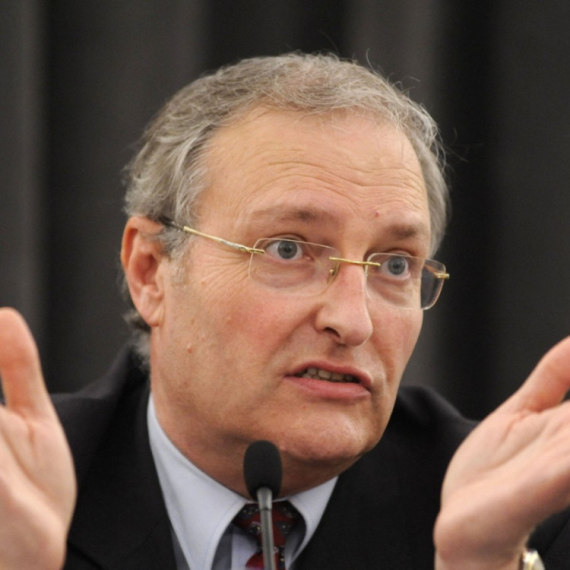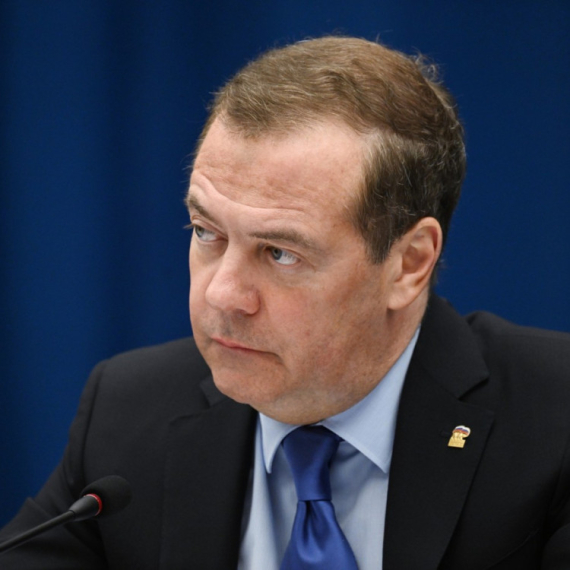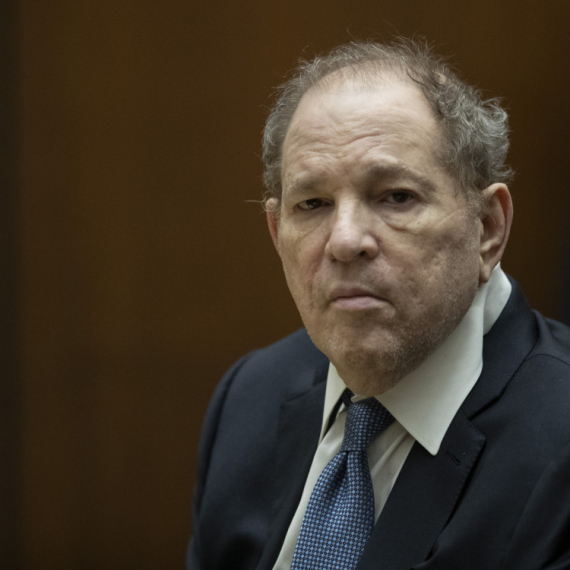Hungary's train services stop to protest
Indefinite strike against the government's intention to privatize health insurance is taking place in Hungrary.
Monday, 17.12.2007.
12:38

Indefinite strike against the government's intention to privatize health insurance is taking place in Hungrary. Shorter strikes also were announced at several hospitals, hundreds of schools and some regional bus services. Anti-government protesters were expected to form one-lane roadblocks to slow traffic at dozens of spots around the country. Hungary's train services stop to protest A two-hour, early morning strike at Budapest's Ferihegy Airport did not cause any flight delays, airport spokesman Domokos Szollar said. Despite the strike, Prime Minister Ferenc Gyurcsany said he was confident the much-disputed health sector bill would be approved in parliament Monday by deputies of the two governing parties. The push for privatization in the health sector has been a key policy of the Alliance of Free Democrats — the Socialists' coalition partners. Disputes went on for months between the two parties over how to implement much-needed reforms in the state health services — where while most services are nominally free of charge, many patients still pay illegal "gratuity fees" to doctors and there are large regional differences in quality of service. Opponents, including the Hungarian Chamber of Doctors, say private health insurers, by seeking to make profits in the sector, would break with a long-standing tradition of "social solidarity" and would leave the poor and those already suffering from health problems without adequate coverage. Government officials dispute the allegations. Last year, Gyurcsany's government began to implement a wide range of reforms in the state sector, including the closing of secondary railway lines, daily fees for doctor's appointments and hospital stays, university tuition fees and the firing of tens of thousands of state employees. Hungary's struggle to cut what was the European Union's highest state budget deficit in terms of gross domestic product in the past few years has resulted in a higher inflation rate — an annual 7.1 percent in November — and low growth. Hungary's economy expanded by an annual 0.9 percent in the third quarter of 2007, the lowest figure in 11 years. The reforms have also helped erode the popularity of Gyurcsany and his coalition. According to a Gallup poll released last week, support for the Socialist Party among all respondents was 13 percent, while the Free Democrats stood at 2 percent. Fidesz, the main center-right opposition party, was supported by 38 percent of respondents, while 44 percent of the 1,010 people asked said they would not vote or were uncommitted. The poll's margin of error was 3.1 percentage points.
Hungary's train services stop to protest
A two-hour, early morning strike at Budapest's Ferihegy Airport did not cause any flight delays, airport spokesman Domokos Szollar said.Despite the strike, Prime Minister Ferenc Gyurcsany said he was confident the much-disputed health sector bill would be approved in parliament Monday by deputies of the two governing parties.
The push for privatization in the health sector has been a key policy of the Alliance of Free Democrats — the Socialists' coalition partners.
Disputes went on for months between the two parties over how to implement much-needed reforms in the state health services — where while most services are nominally free of charge, many patients still pay illegal "gratuity fees" to doctors and there are large regional differences in quality of service.
Opponents, including the Hungarian Chamber of Doctors, say private health insurers, by seeking to make profits in the sector, would break with a long-standing tradition of "social solidarity" and would leave the poor and those already suffering from health problems without adequate coverage.
Government officials dispute the allegations.
Last year, Gyurcsany's government began to implement a wide range of reforms in the state sector, including the closing of secondary railway lines, daily fees for doctor's appointments and hospital stays, university tuition fees and the firing of tens of thousands of state employees.
Hungary's struggle to cut what was the European Union's highest state budget deficit in terms of gross domestic product in the past few years has resulted in a higher inflation rate — an annual 7.1 percent in November — and low growth.
Hungary's economy expanded by an annual 0.9 percent in the third quarter of 2007, the lowest figure in 11 years.
The reforms have also helped erode the popularity of Gyurcsany and his coalition.
According to a Gallup poll released last week, support for the Socialist Party among all respondents was 13 percent, while the Free Democrats stood at 2 percent.
Fidesz, the main center-right opposition party, was supported by 38 percent of respondents, while 44 percent of the 1,010 people asked said they would not vote or were uncommitted. The poll's margin of error was 3.1 percentage points.
























Komentari 0